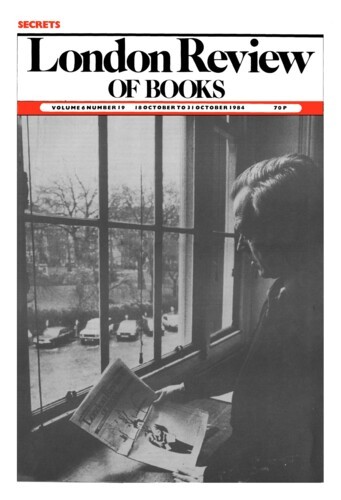Nietzsche’s Centaur
Bernard Williams, 4 June 1981
Nietzsche’s first book, The Birth of Tragedy, was published in 1872, when he was 27, and while he was a Professor of Classics at Basel. It had the unusual effect, for him, of attracting some attention at the time of its appearance: after that, Nietzsche’s writings virtually ceased to be noticed until the 1890s, by which time he was, for the last 11 years of his life, insane, virtually without speech, and out of touch with the world.





